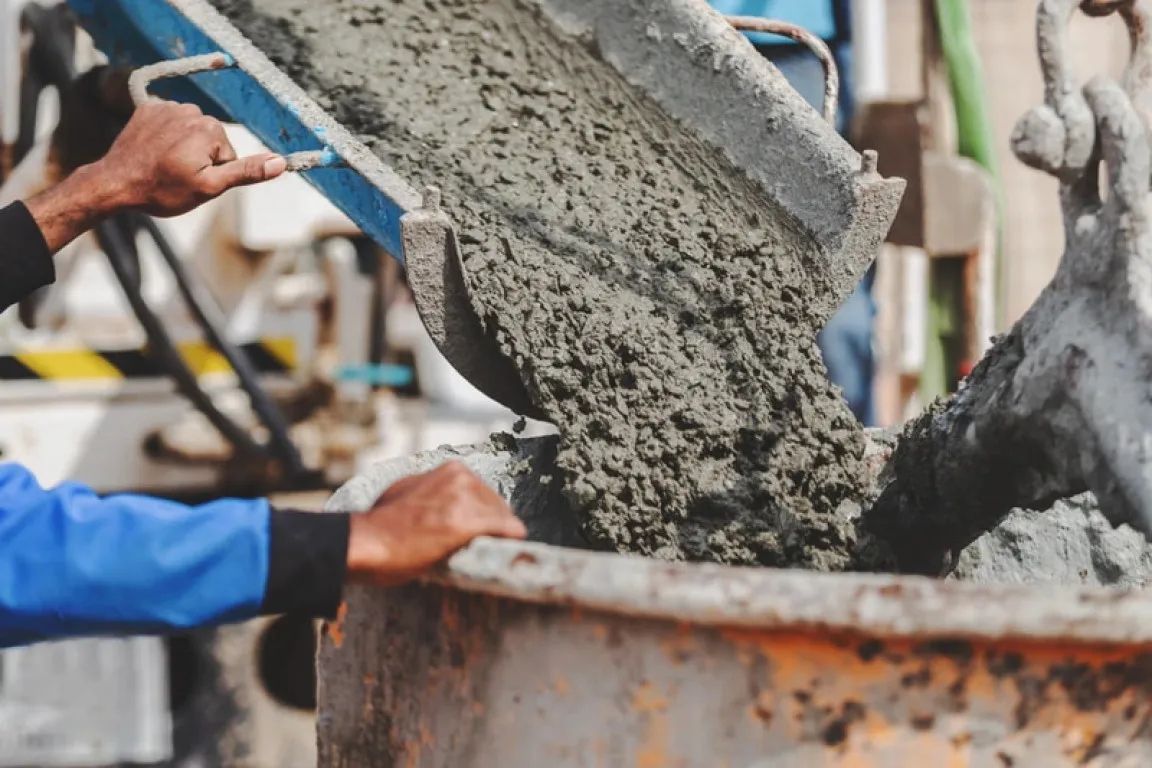Ready-mix concrete is a type of concrete produced by a batching plant where the various forming materials are mixed according to exact measurements. Its production dates back to the 1930s. To this day, the manufacture of ready-mix concrete is carried out under the supervision of experts in the field.
In the construction world, ready-mix concrete helps increase the efficiency of a project. With readily available concrete, construction workers do not need to mix all the raw materials from scratch. The concrete is ready to use when it arrives at the construction site.
To increase your insight into the various types of concrete in construction, let's understand the complete discussion about ready-mix concrete below!
What Is Ready Mix Concrete?
Ready-mix concrete is a type of concrete that can be used immediately without any prior raw material processing. The mixing is done at a separate location from the construction site. Ready-mix concrete usually consists of cement, sand, gravel, and admixture as a special additive.
Generally, ready-mix concrete fits large-scale construction projects. Experts in each field who make the formulation have a hand in ensuring its quality. Several experts involved in ready-mix concrete production are designers, formulators, and quality guarantees of the finished product.
Types of Ready Mix Concrete
There are two types of ready-mix concrete in construction projects. They are grouped based on their quality. Here's the explanation:
1. Non-Structural Concrete
A type of ready-mix concrete that does not contain structural elements, such as iron. It is typically used as reinforcement for concrete casting. The concrete here is classified as class I. Some of those included in non-structural concrete based on their quality are K-B0 (Zero), K-100, K-150, K-175, and K-200.
2. Structural Concrete
A type of concrete that contains iron reinforcement. It suits construction work that involves reinforcing and casting concrete. Nevertheless, it does not rule out the possibility of this type of concrete being used in preparing steel structures, concrete foundations, formwork, brick installation, and other purposes.
If non-structural concrete is in class I, then structural concrete is in class II. Several grades of concrete are classified as structural concrete, namely K-225, K-250, K-275, and K-300.
Ready Mix Concrete Grades
Concrete grades refer to the classification of each concrete type's usefulness. There are two indicators for determining concrete grades, namely fc and K. These concrete grades are determined based on SNI 03-2847-2002, which refers to standards created by the American Concrete Institute (ACI).
Grade Measurement with fc
The first grade is measured by fc, which has units of MPa equivalent to 10 kg/cm2. The minimum compressive strength by the SNI standards is 25 MPa. That means the FC concrete quality is 25 MPa at 28 days with a diameter of 15 cm and a height of 30 cm.
Grade Measurement with K
The K-250 grade states a compressive strength with a minimum characteristic of 250 kg/cm2 at a concrete age of 28 days using a cube shape measuring 15 × 15 × 15 cm. These measurements are based on European standards. Therefore, the 25 MPa grade cannot be compared to K-250.
We can compare the compressive strength more accurately by paying attention to the shape of the concrete. Typically, concrete has cube and cylinder shapes. So, the grade of concrete with an FC of 25 MPa will be different from the K of cube concrete.
Read also: Knowing the Importance of Concrete Treatment
Why Use Ready Mix Concrete
The use of ready-mix concrete in construction work offers several advantages, including:
1. Save Time
Ready-to-use concrete can save time. Construction workers only need to prepare the tools to pour ready-mix concrete. With ready-mix concrete, the need for mixing is no longer necessary.
2. Reduce Air and Noise Pollution
Ready-mix concrete can be used immediately. Therefore, workers don't have to mix raw materials with machines at the construction site. This can reduce air and sound pollution caused by mixing the raw materials that make up concrete.
3. Manufacturer Quality Assurance
Ready-mix concrete production is directly supervised by experts. This quality monitoring is conducted at every stage of the procedure, starting from weighing the ingredients, stirring, and pouring the mixture or batter into the mixer. Apart from modern equipment, professional technicians also play a role in ensuring the final results of ready-mix concrete production.
How to Make Ready Mix Concrete
Generally, there are three ways to make ready-mix concrete: central mixing, shrink mixing, and truck mixing. See the following brief explanation:
1. Central Mixing
The measured raw materials for the concrete are put into a mixer. Only then will the mixing process be carried out accordingly. The ready-to-use concrete will be delivered to the construction site using a truck mixer, ensuring the mixing continues throughout the journey.
2. Shrink Mixing
Only half the mixture of concrete raw materials is put into the mixer. After that, the ready-to-use concrete is poured into a mixer truck and transported to the construction site. The mixing is done during the journey. That way, ready-mix concrete will not be damaged, even though the batching plant location and delivery destination are far away.
3. Truck Mixing
As mentioned previously, the mixing process in the truck mixer is the final stage. At this point, the ingredients are mixed using 70 to 100 cycles at medium speed. This way, the concrete is perfectly mixed while not losing its quality.
Once the ready-mix concrete arrives at its destination, construction workers need to use specific equipment to flow it to the target area using specific tools, like cast lifts and concrete pumps.
That's all about ready-mix concrete, which plays a role in ensuring efficiency in the world of construction. The use of this ready-to-use concrete can help a construction project finish according to the timeline.
If you need ready-mix or ready-to-use concrete, Ready Mix Concrete from Semen Merah Putih could be an option. Available in various qualities, Ready-Mix Concrete can be used to build buildings for various needs, such as industrial, commercial, and public infrastructure.
Semen Merah Putih Ultramix-G Cement is Portland Cement, produced according to SNI 2049-1:2020 and classified as Type-I. The composition is suitable for general construction needs that do not require special requirements, such as sulfate resistance and low hydration heat.
Semen Merah Putih Ultramix-G Cement can be used to apply ready-mix concrete and precast concrete with optimal strength development and good workability. These quality characteristics make Semen Merah Putih Ultramix-G the right product for building, road, bridge, and other infrastructure construction work.
So, are you interested in using Ready-Mix Concrete from Semen Merah Putih? Contact us for further information. Let's increase efficiency and construction quality with Semen Merah Putih!
Read also: 5 Effective Tips for Concrete Casting



